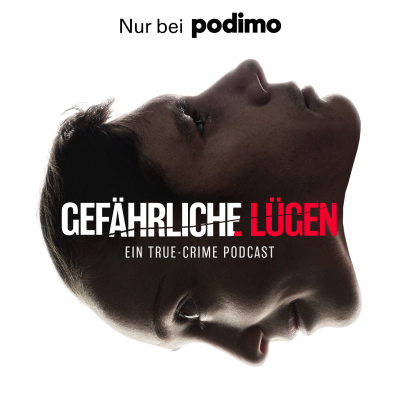
Bariscope
Englisch
Kostenlos bei Podimo
Kostenlos hören bei Podimo
Starte jetzt und verbinde dich mit deinen Lieblingspodcaster*innen
- Vertraut von über 1 Mio. deutschen Hörer*innen
- Über 1.000 lokale Podcasts und Shows – nur bei Podimo
- Keine Zahlung nötig
Mehr Bariscope
Welcome to Bariscope! This podcast wants to create a space where we hold critical and curious conversations with International Relations scholars and practitioners get personal in-depth insights into pressing issues of world politics. Apart from discussing matters such as African politics, economic development and the rise of populism as well as migration, foreign aid and the influence of gender, race and class on International Relations we provide insights into academic work as such and hope to present inspiration for everyone that is interested in IR and world politics.
Alle Folgen
20 Folgen#19: The Final Episode of Bariscope - Our thoughts on International Relations, Academia and a Call to Action
This is it: After three seasons we wrap up Bariscope with our last episode. In these 15 minutes we look back on how our initial idea turned out, share our thoughts on international relations and academia and call out to all of you listening to launch critical and curious initiatives. And of course we answer our last question: sharing one tip that we would give our 20 year old selves. But most importantly we want to thank you, our listeners, and everyone else that has supported us during the last two years. Without your ideas, inputs and interactions we would not have been able to create Bariscope! In this sense we thank you from the bottom of our hearts and are already looking forward to when our paths will cross next. Stay critically curious, Lea & Lukas
#18: How to start your own podcast at age 20, with Lukas and Lea
Hello everyone! In this second last episode of Bariscope we sit down and talk all things creating your own podcast: how the idea crystallised, the questions you need to ask yourself before you embark on the journey of podcasting, why preparation is key, the equipment we used, how to find and reach out to potential guests and of course we share our learnings from these two years of podcasting. This episode is for all of you that are curious about starting their own podcast and all others that are intrigued about a behind-the-scenes-ramble from yours truly ;) Voilà, that’s all. If you have any questions about starting your own podcast, don’t hesitate to reach out on Instagram @bariscope_ccc! Stay critically curious, Lea & Lukas The equipments mentioned: Hosting platform (which allows episode uploads on Spotify, Apple etc. and is for free): anchor.fm [http://anchor.fm/] Editing audio (for free): Audacity Theme Music: audionetwork.com [http://audionetwork.com/] (you need to buy a license but it’s quite cheep) Recording: Zoom (professional licence to allow for unlimited people, duration and recording)
#17: Think tanks, navigating your early career in IR and a call for a courageous Swiss foreign policy with Anna-Lina Müller
**timestamps below** For the final episode of this three-part series we have the great pleasure to welcome Anna-Lina Müller, Co-Director of foraus (the leading grass root think tank on Swiss foreign policy) since Spring 2022. After starting medicine at the University of Zurich and realising that it simply wasn’t for her, she switched to political science and history. During her bachelor studies Anna-Lina co-founded DiscussIt, an association that organizes political podiums in over 40 partner schools in Switzerland ahead of votations. In 2021 she completed her masters degree in political science and government at the University of Oxford having focused in her thesis on the political consequences of gender-specific job automation. Prior to being appointed Co-Director of foraus, Anna-Lina worked at the Swiss Federal Departement for Foreign Affairs, the UN in Nairobi, various NGOs in Athens and South Africa and think tanks in Zurich, Brussels, Oxford and Berlin. Anna-Lina has covered in her work asylum policy, the conflict in the Middle East, security related questions such as piracy in East Africa, democratic change, welfare politics, EU-Swiss relationships and currently Swiss neutrality. We took full advantage of Anna-Lina’s incredibly broad experience and asked her what it takes to build your own organisation, if moving abroad can be lonely, how Switzerland can have a more courageous foreign policy in a polarised world and how think tanks can contribute to bringing ideas from academia to policymakers and citizens. We promise you'll learn so much from Anna-Lina for example that even at Oxford University « they’re only cooking with water ». Enjoy and stay critically curious, Lea & Lukas Foraus: https://www.foraus.ch/en/ [https://www.foraus.ch/en/] Anna-Lina on Twitter: @AnnaLinaSophie [https://twitter.com/annalinasophie?lang=en] —-- ***timestamps*** *02:30: Why did you decide to study political science? *05:55: Was there a political event that politicised you? *08:10: Everything Anna-Lina has learned from co-founding DiscussIt *13:13: What motivated you to move abroad for your studies? And why Anna-Lina doesn’t plan her career ahead *18:00: Strategies that might help you when moving abroad *20:23: What are the advantages of a broad approach compared to specialising in a certain field? *24:10: How does foraus operate? *26:53: How do you ensure a constant flow of volunteers supporting foraus’ grassroots approach? *29:30: Why do we need think tanks when we have universities? And what are the limits of think tanks compared with academia? *33:20: Anna-Lina’s view on neutrality and her participation in the neutrality expert group of federal councillor Ignazio Cassis *36:35: How can Switzerland be more courageous in foreign policy? *41:15: A call to all of us to stand up for democracy *45:45: 3 tips to your 20 year old self?
#16 - The situation of female refugees in Greece with Raquel Herzog
We are looking forward to sharing with you this conversation with Raquel Herzog (it's been a long time coming!). Raquel is the founder of SAO association, a Swiss NGO that supports displaced women in Greece since 2015. We actually had the pleasure to welcome Raquel Herzog at the University of Geneva during an event both of us co-organized with foraus (an organization working on swiss foreign policy) back in September 2020. We've received many positive feedbacks on that event and the situation of female refugees continues to be underreported, which is why it made absolute sense to invite her again, this time on the podcast. In our 45 Minute conversation, Raquel will shed light on asylum policy in Europe and the situation of in particular female refugees in Greece, who constitute over 50% of the people on many Greek islands. We will also be talking about the ongoing humanitarian situation regarding the displacement of millions of Ukrainians because of the war. Do check out SAOs website (you will also find links to support the NGO): https://www.sao.ngo/ [https://www.sao.ngo/] Stay critically curious, Lea & Lukas
#15: War crimes and trauma in Ukraine and the effectiveness of international humanitarian law with Belkis Wille, Senior Researcher at Human Rights Watch
*timestamps below* Bariscope is back with three great episodes! It’s an honour and pleasure to have a very special guest to kick off this third season: Belkis Wille, Senior researcher in the crisis and conflict division at Human Rights Watch. She has been reporting in Ukraine on the killings, torture and enforced disappearances in areas around Kyiv and Chernihiv as well as the siege of Mariupol in March 2022. We will talk about the horrible first months of the war in Ukraine, how human rights watch operates in such a context and then hear Belkis' take on how this war compares to the crisis in Yemen and how international humanitarian law can have an impact. A little more on Belkis: she grew up in Switzerland, moved to the US to complete a bachelor degree in government at Harvard university followed by a master in human rights and humanitarian law at the University of Essex in 2011. After her studies Belkis worked in Geneva at the World Organization against Torture as a human rights officer for the Middle East and for North Africa and then shortly after, joined Human Rights Watch – at age 24. Before starting her current role, she worked as Human Rights Watch’s senior Iraq researcher and published extensively on ISIS and before that was the Kuwait, Qatar and Yemen researcher, based in Sanaa. We hope you learn as much as we did! Stay critically curious, Lea & Lukas This conversation was recorded mid-May 2022, we encourage you to check out the website from human rights watch for more recent information as well as Belkis’ Twitter account (she has over 18’000 followers!). Human Rights Watch Ukraine: https://www.hrw.org/europe/central-asia/ukraine [https://www.hrw.org/europe/central-asia/ukraine] Belkis Wille Twitter: https://twitter.com/belkiswille?lang=en [https://twitter.com/belkiswille?lang=en] Timestamps - 02:50: What for procedures kicked in at Human Rights Watch (HRW) following the invasion of Ukraine on February 24th 2022? - 06:50: How come HRW prepared for the war but our governments did not really? - 09:25: How Belkis’ HRW mission operated during the first few weeks of the war - 10:25: How do you interview survivors and witnesses of war crimes as a human rights lawyer without retraumatizing them? - 14:00: Concrete techniques that Belkis uses when interviewing victims of war - 16:00: How does HRW stay accountable to the people they interview? - 18:00: How is the Ukraine war different in terms of the prosecution of war crimes compared to Syria or Yemen? - 19:20: What for violations are being examined/prosecuted in Ukraine? (short explanation on the intricacies of international humanitarian law) - 22:11: Belkis’ Research Report in Mariupol following two weeks of siege and the testimonies she gathered - 28:00: The tragedy of elderly people and people with disabilities being the least mobile and thus stuck in situations of armed conflicts - 29:35: The differences Belkis has observed when covering Ukraine compared to Yemen. How come the war in Yemen has been so silenced? - 35:18: Is international human rights protection today in a better place than 10 years ago? - 38:59: Our guest’s dream of becoming a human rights lawyer when she was 10 years old - 42:07: Three tips to your 20 year-old self?















































